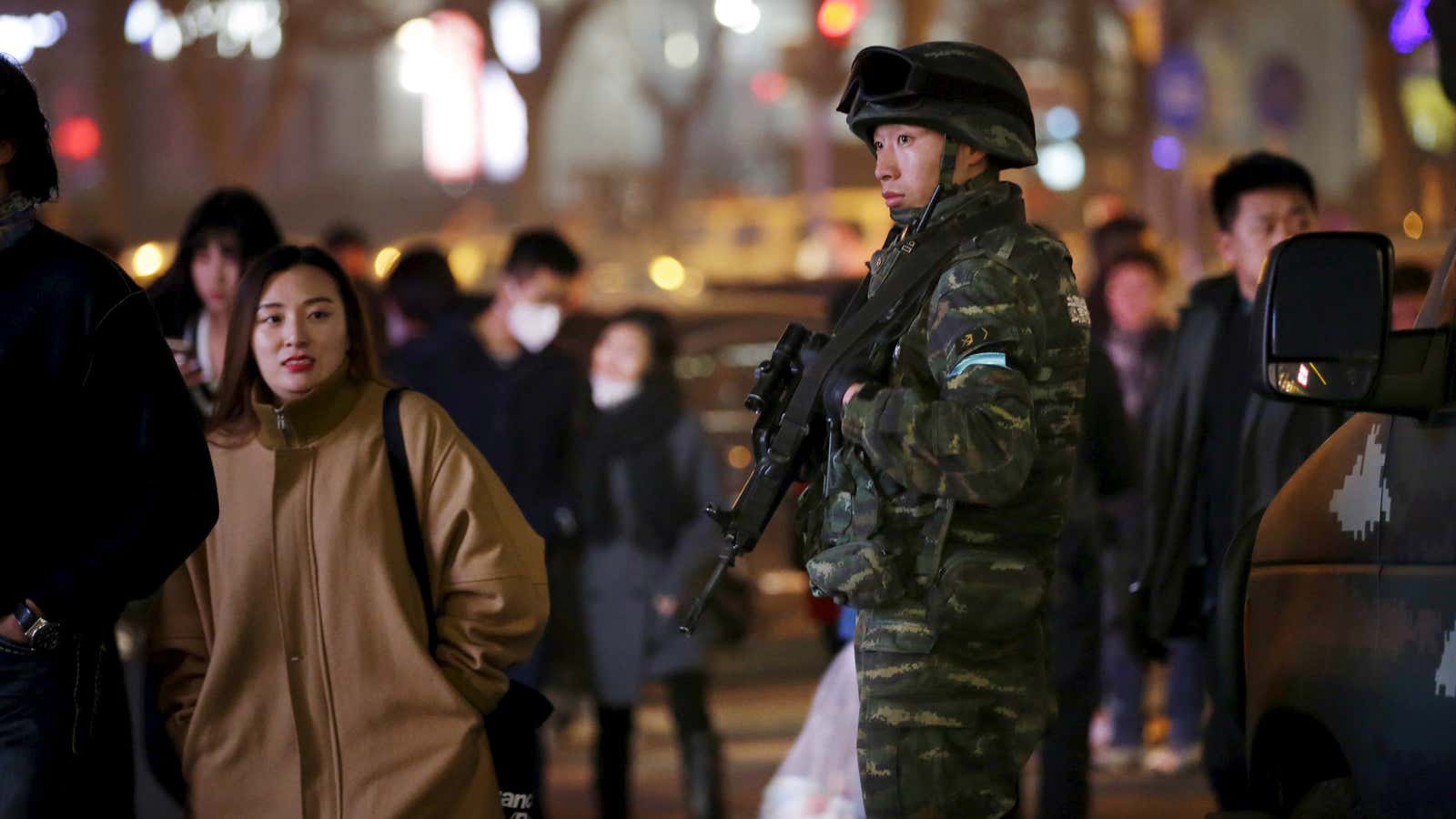China’s legislature passed a controversial new anti-terrorism law on Sunday (Dec. 27) that critics worry will give the government too much power, The New York Times reports.
While the Chinese news media did not publish the law’s text immediately, the draft version worried many, including US President Barack Obama, business groups, and human rights advocates. The law broadly defines terrorism, grants the government more power to censor and authorizes governmental access to private business information. Opponents warn that the legislation will provide the Chinese government with more tools to spy on its citizens, whether or not those citizens have any terrorist associations.
One oft-cited provision of the law: a requirement that internet service and telecommunication providers help the government with decryption assistance, “back door” access, and other technical support as needed. Critics like Human Rights Watch allege such access could allow the government to track users’ behavior. It would also impact multinational corporations operating in China, the Times notes, including Apple, IBM and Cisco.
The Chinese government, however, says the law is necessary for security. “Not only in China, but also in many places internationally, growing numbers of terrorists are using the Internet to promote and incite terrorism, and are using the internet to organize, plan and carry out terrorist acts,” Li Shouwei, a criminal law expert from the Standing Committee of the National People’s Congress, said at a news conference reported by The Times.
Li also denied that the law would infringe on businesses or human rights. ”Relevant regulations in the anti-terrorism law will not affect the normal business operation of companies, and we do not use the law to set up ‘back doors’ to violate the intellectual property rights of companies,” he said, according to a report from ABC News. ”The law will not damage people’s freedom of speech or religion.”
The law’s passage follows several bouts of ethnic violence, including the stabbing of 29 people at a Kunming train station in March 2014 and an attack on a Xinjiang coal mine in September. Both attacks were carried out by the Uighurs, a Turkic minority comprised mainly of Sunni Muslims. Beijing has attempted to tie these incidents to international terrorism, but foreign experts counter that the violence is a result of cultural oppression, not outside agitation.
The law is set to go into effect on January 1, 2016.
